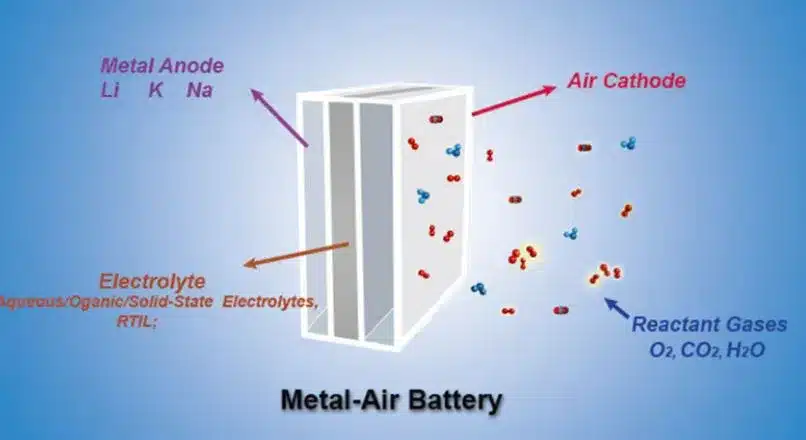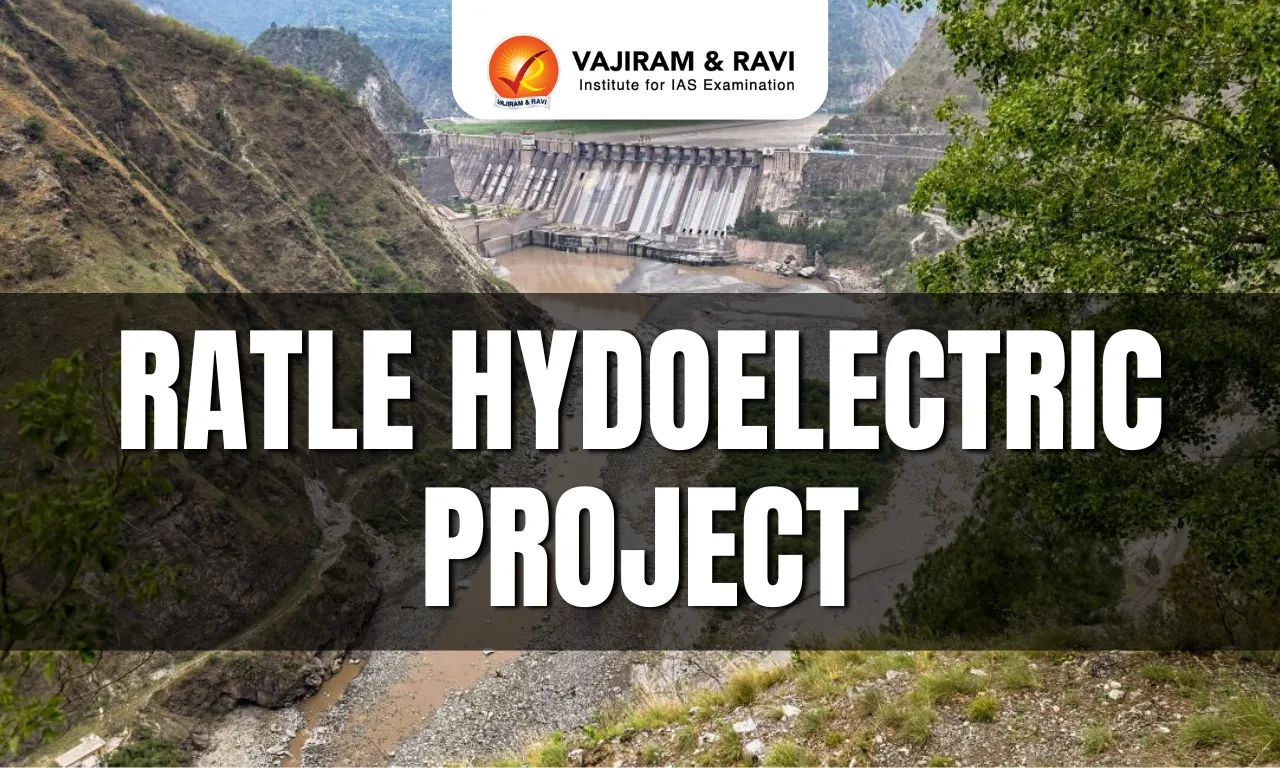About Metal-air batteries:
- It is an energy storage system based on electrochemical charge/discharge reactions that occur between a positive “Air Electrode” (cathode) and a negative “Metal Electrode” (anode).
- The negative electrode is typically made of metals such as Li, Zn, Al, Fe, or Na, while the positive usually contains some form of porous carbon material and a catalyst.
- Advantages :
- These batteries have higher energy density than a lithium-ion battery.
- Accessibility: Metal-air batteries use readily available metals in India, making them more accessible than lithium-ion batteries.
- Cost-Effective: Producing these batteries locally reduces imports.
- Environment-Friendly: Metal-air batteries are recyclable, offering a safer alternative to lithium-ion batteries that pose environmental hazards.
- Lightweight: Metals like aluminum are lightweight and can provide comparable or even higher energy density than lithium-ion batteries, making them an attractive choice.
- Applications: Due to their high scalability and energy density, M-Air batteries can be used in a large variety of applications:
- It is used in large-scale stationary energy storage applications
- Transportation
- Renewable generation
Q1: What is Lithium?
It is a chemical element with the symbol Li and atomic number 3. Classified as an alkali metal, lithium is a solid at room temperature. It is the lightest of the solid elements. It is soft, white, and lustrous. It reacts vigorously with water.
Source: Durable efficient battery for energy solutions in remote sub-zero conditions
Last updated on December, 2025
→ Check out the latest UPSC Syllabus 2026 here.
→ Join Vajiram & Ravi’s Interview Guidance Programme for expert help to crack your final UPSC stage.
→ UPSC Mains Result 2025 is now out.
→ UPSC Notification 2026 is scheduled to be released on January 14, 2026.
→ UPSC Calendar 2026 is released on 15th May, 2025.
→ The UPSC Vacancy 2025 were released 1129, out of which 979 were for UPSC CSE and remaining 150 are for UPSC IFoS.
→ UPSC Prelims 2026 will be conducted on 24th May, 2026 & UPSC Mains 2026 will be conducted on 21st August 2026.
→ The UPSC Selection Process is of 3 stages-Prelims, Mains and Interview.
→ UPSC Result 2024 is released with latest UPSC Marksheet 2024. Check Now!
→ UPSC Prelims Result 2025 is out now for the CSE held on 25 May 2025.
→ UPSC Toppers List 2024 is released now. Shakti Dubey is UPSC AIR 1 2024 Topper.
→ UPSC Prelims Question Paper 2025 and Unofficial Prelims Answer Key 2025 are available now.
→ UPSC Mains Question Paper 2025 is out for Essay, GS 1, 2, 3 & GS 4.
→ UPSC Mains Indian Language Question Paper 2025 is now out.
→ UPSC Mains Optional Question Paper 2025 is now out.
→ Also check Best IAS Coaching in Delhi

















